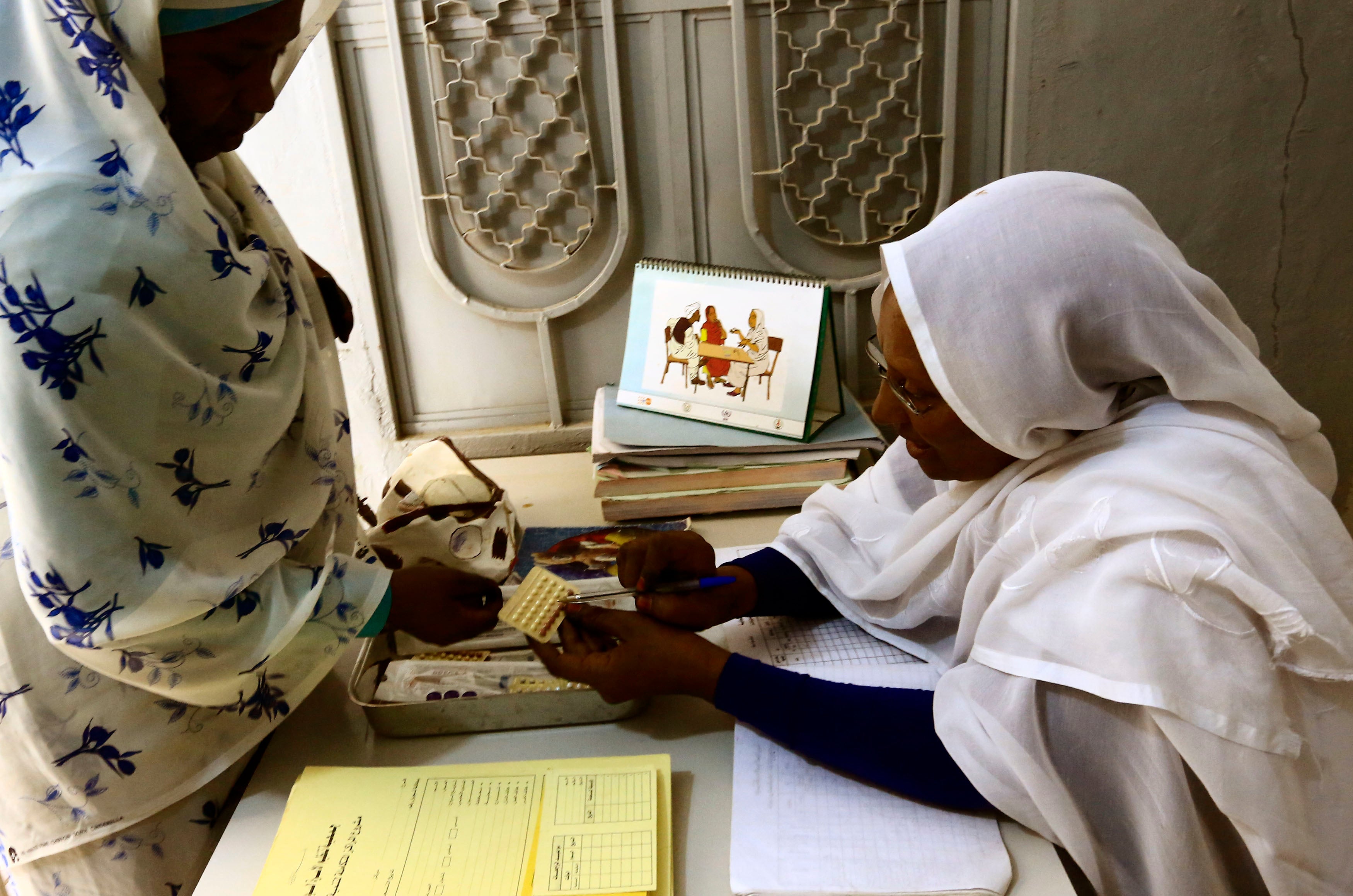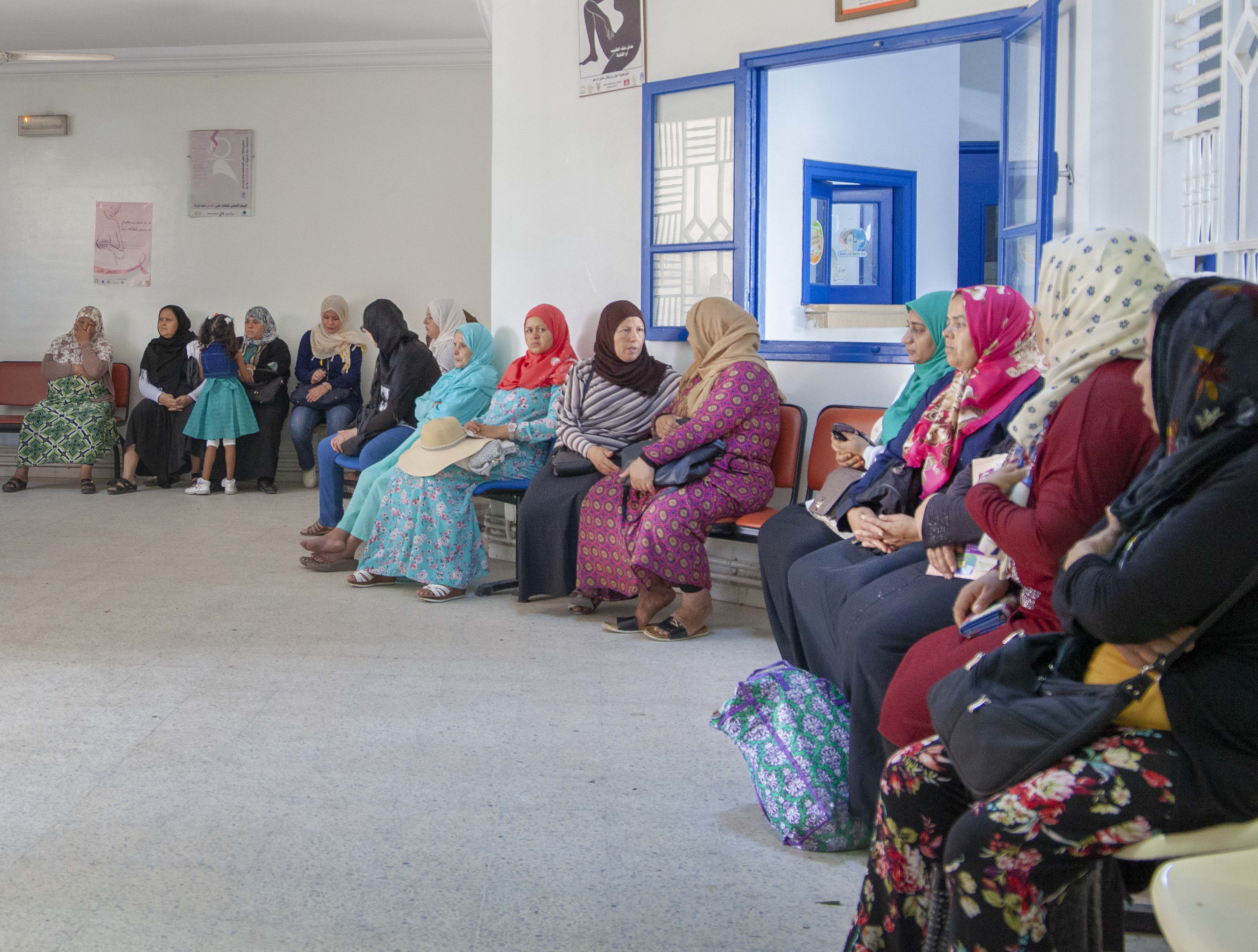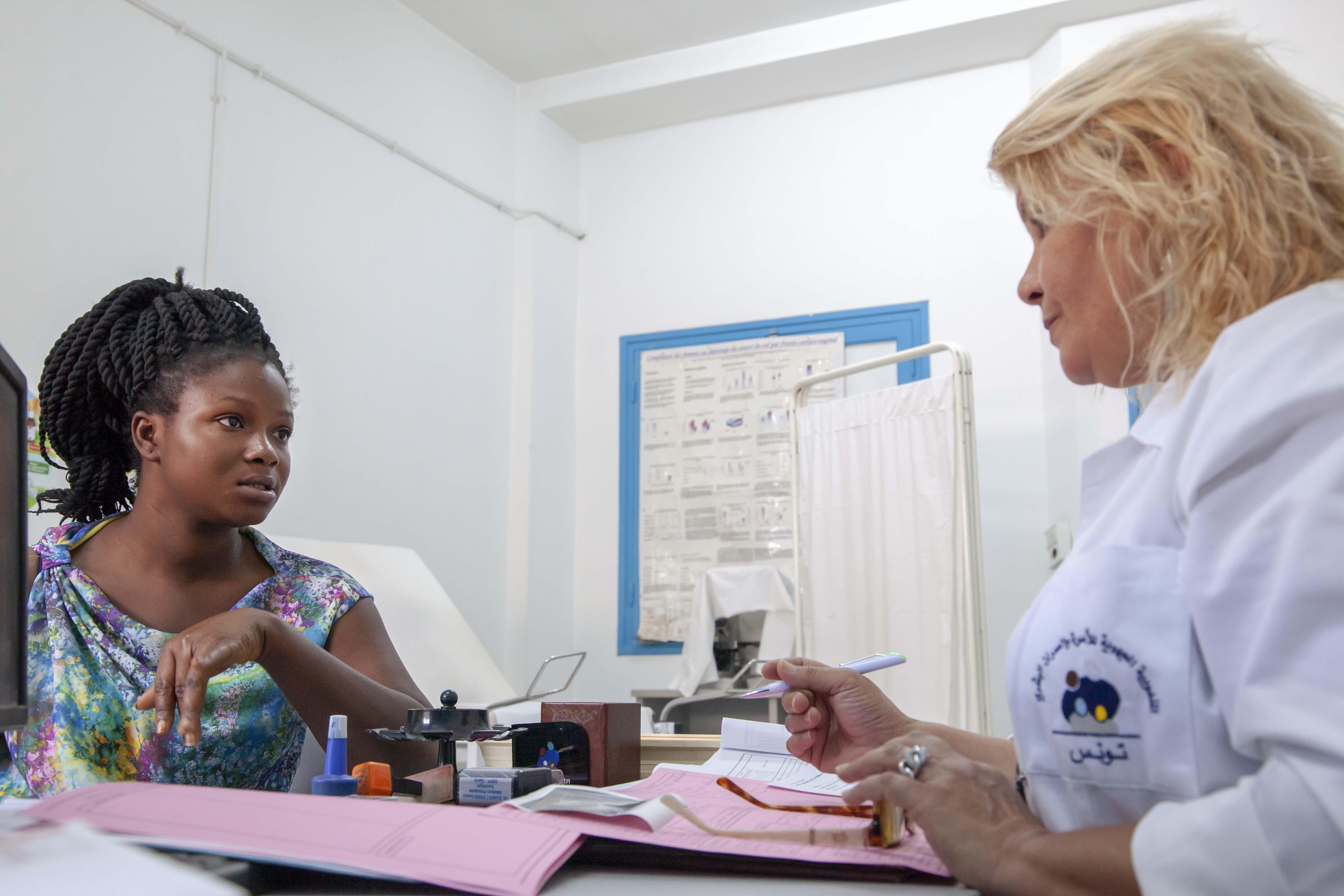UNFPA defines unmet need for family planning as the percentage of women of reproductive age (15-49 years), who do not want to get pregnant, or want to delay childbearing for the upcoming period, but are not using any modern method of contraception. It can be calculated for women who are married/ in a union, or for all women.
The total number of women with an unmet need for family planning (FP) consists of two groups of women: those with an unmet need for limiting, and those with an unmet need for spacing.
Women who wish to limit, desire no additional children, whereas spacing refers to women who desire to postpone their next pregnancy by a specified length of time (for example, for at least two years). There is an unmet need if they are currently not using a contraceptive method to limit/space a next pregnancy.
Family Planning in the Arab Region:
In Arab countries, the knowledge level about FP is, in general, high among both men and women, but the use of contraceptives is still low despite the noticeable increase in the last decades. This is due to a mix of social, cultural, financial and geographical barriers.
The unmet need for family planning (FP) in the Arab states is higher than the global average, respectively 15% compared to 10% globally.. Yet at the same time, 40% of Arab countries are using less than six different family planning methods. Only, Palestine, Qatar, Oman and Tunisia are using between eight to ten different FP methods, Algeria, Egypt, Jordan, Lebanon, Morocco, United Arab of Emirates, Yemen, Sudan, Bahrain, Kuwait, Saudi Arabia, and Syria, are using between five to seven different FP methods and the lowest method-mix is in Djibouti, Somalia, and Libya where only three-four different FP methods are available.
In 2019, of the 91 million women of reproductive age (15-49 years) in the Arab region, 13.6 million women had an unmet need for family planning (FP) as they wanted to avoid pregnancy, but were not using a contraceptive method.
Within the Arab region, Djibouti, Somalia and Sudan have the highest unmet need for family planning for both spacing and limiting, whereas Libya and Sudan have the highest unmet need for spacing.
The Barriers:

Many reasons pose a barrier to use family planning methods such as lack of knowledge of the different contraceptive methods and where to get them, availability of reproductive health supplies and services, or limited access to counseling services or to the FP methods that women want or cannot afford them. In addition, some aspects of the health system or the family planning program may deter women from using the services, such as cultural barriers, negative attitudes of healthcare providers, privacy concerns by the client and the low quality of health services.
Impact of Covid-19
COVID-19 is already causing disruptions in meeting family planning needs for many reasons such as:
- Healthcare providers are re-purposed to respond to the pandemic and may not have time to provide FP/RH servicesService providers may lack personal protective equipment to provide the services safely.
- Reproductive Health/FP resources (human, financial, equipment, etc.) were diverted to respond to Covid-19 pandemic in the ICU units and emergency departments
- Health facilities in many places are closing or limiting services.
- Women are refraining from visiting health facilities due to fears about COVID-19 exposure or due to movement restrictions.
- Supply chain disruptions are limiting availability of contraceptives in many places, and stock-outs of many contraceptive methods are anticipated within the next 6 months.
- Product shortages and lack of access to trained providers or clinics mean that women may be unable to use the contraceptive method of their choice, may instead use a less effective short-term method, or may discontinue contraceptive use entirely
Achieving Zero Unmet Need

Successful family planning programs have to respond to clients’ needs and support informed and voluntary contraceptive choice. They offer a range of affordable contraceptive methods and ensure continuous supply of contraceptive commodities. Successful programs provide client-centered services and comprehensive counseling, using a variety of service delivery approaches.Ultimately, this is to enable more women and couples to realize their ambitions for themselves and their families and helping communities and nations achieve their development goals.
Three key activities to achieve zero unmet need for family planning are; increased demand, sustainable supply, and enabling policy environment.



